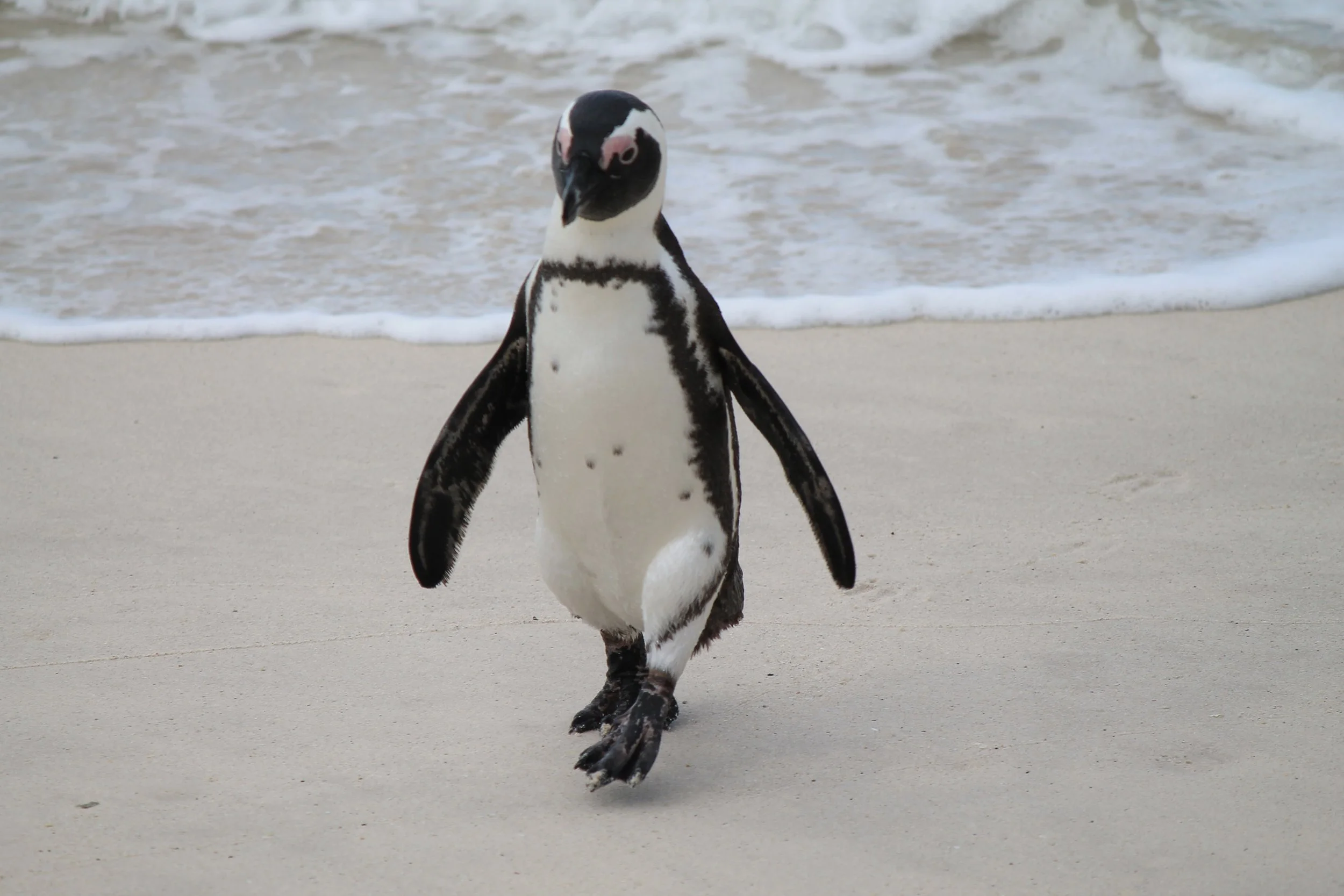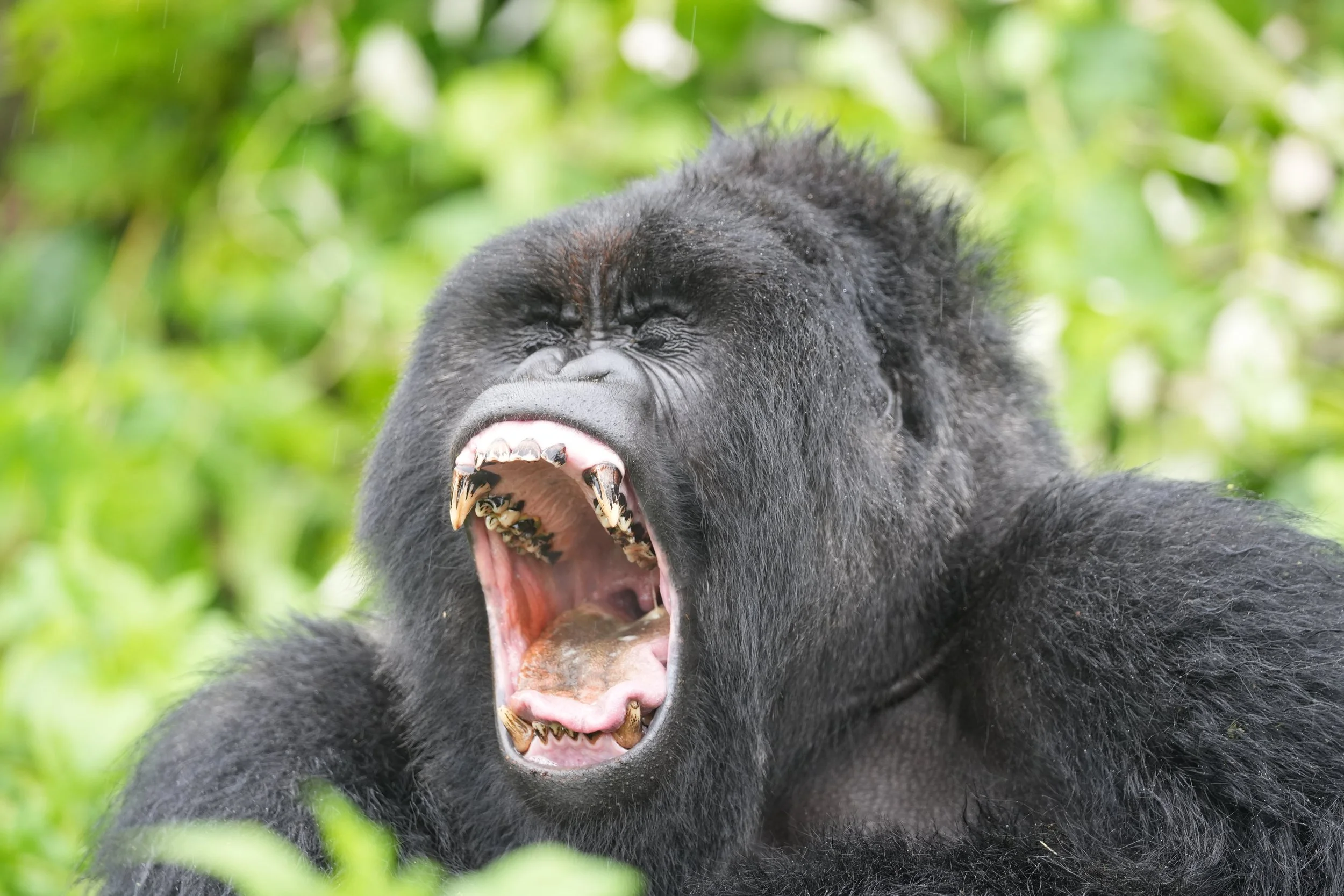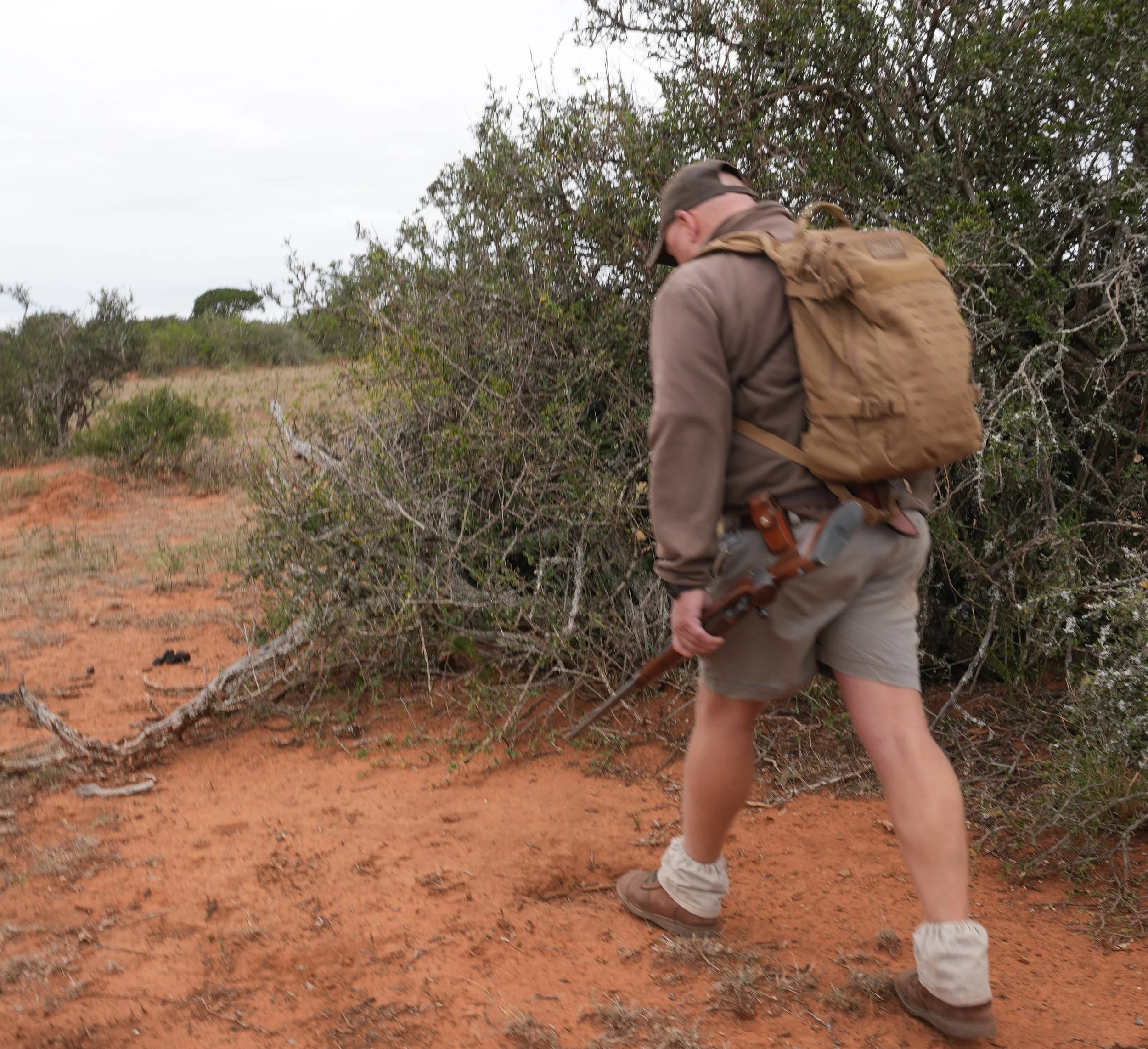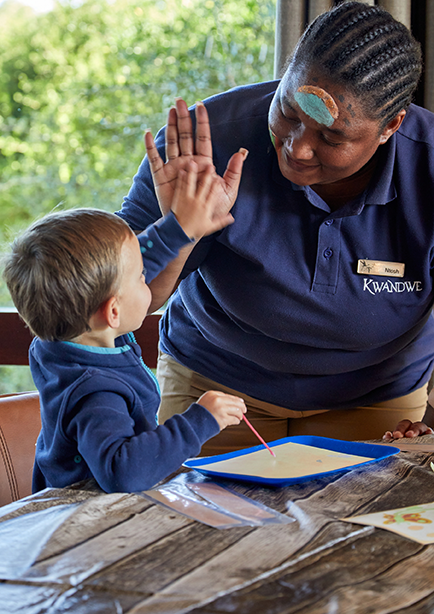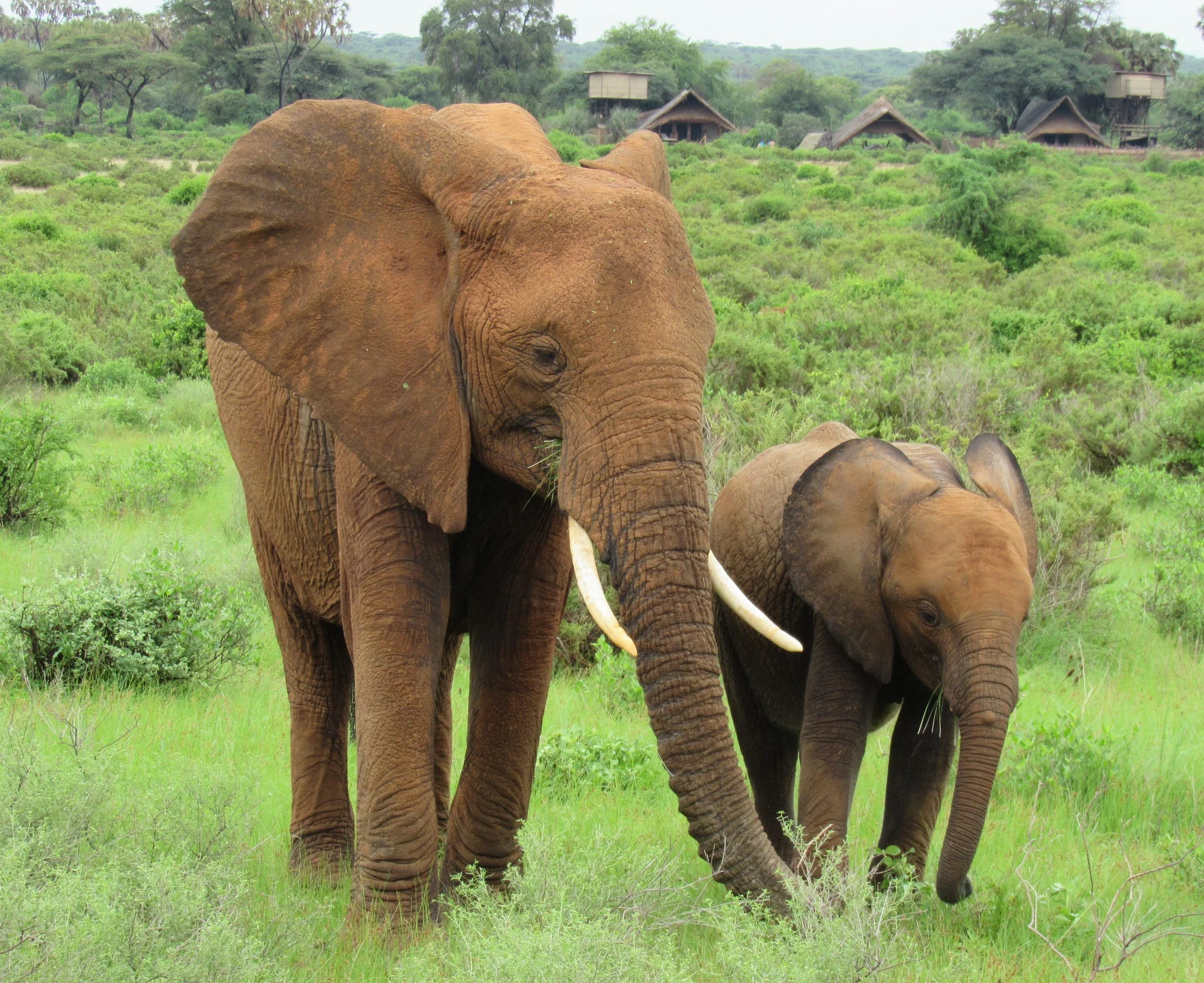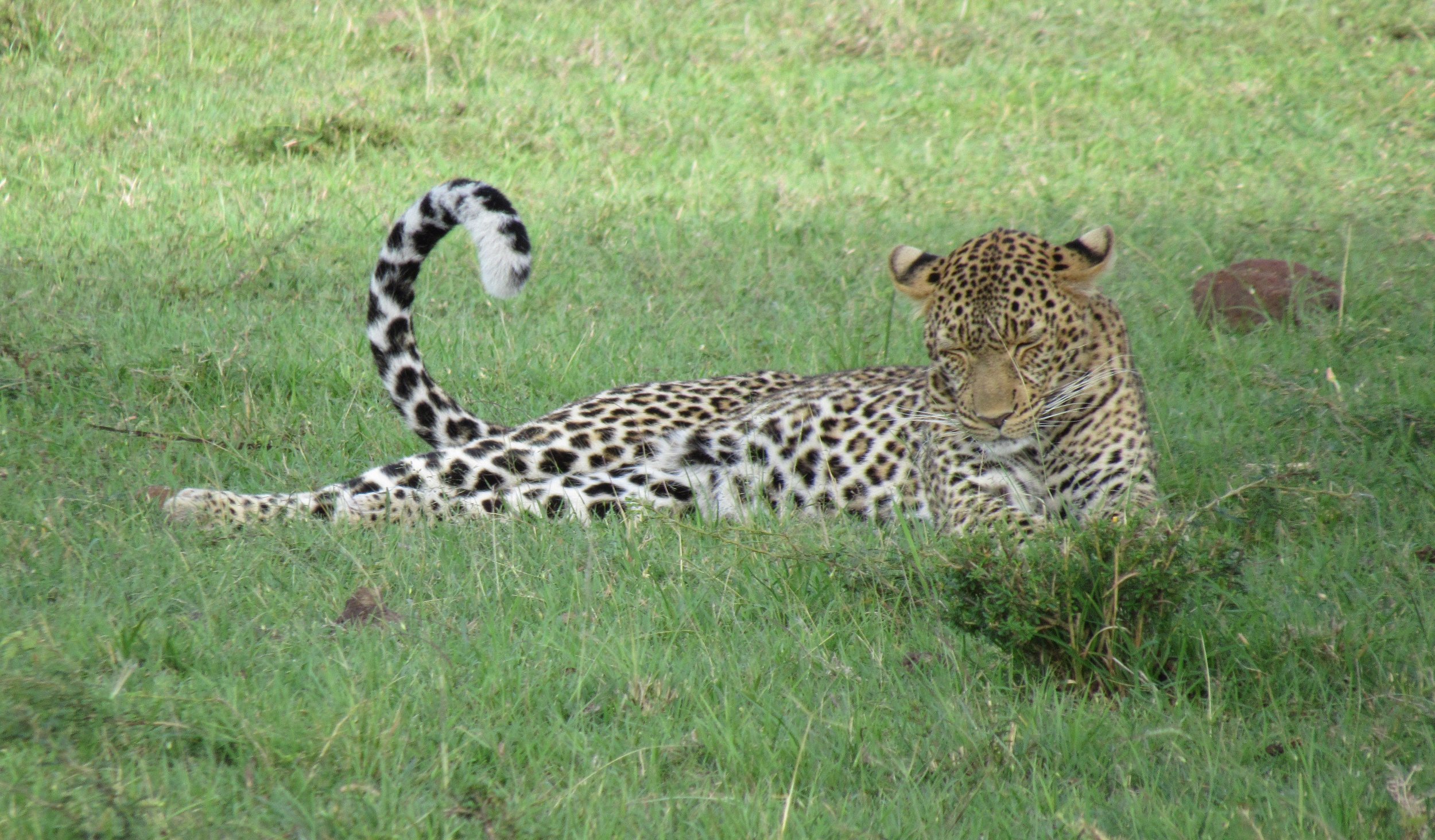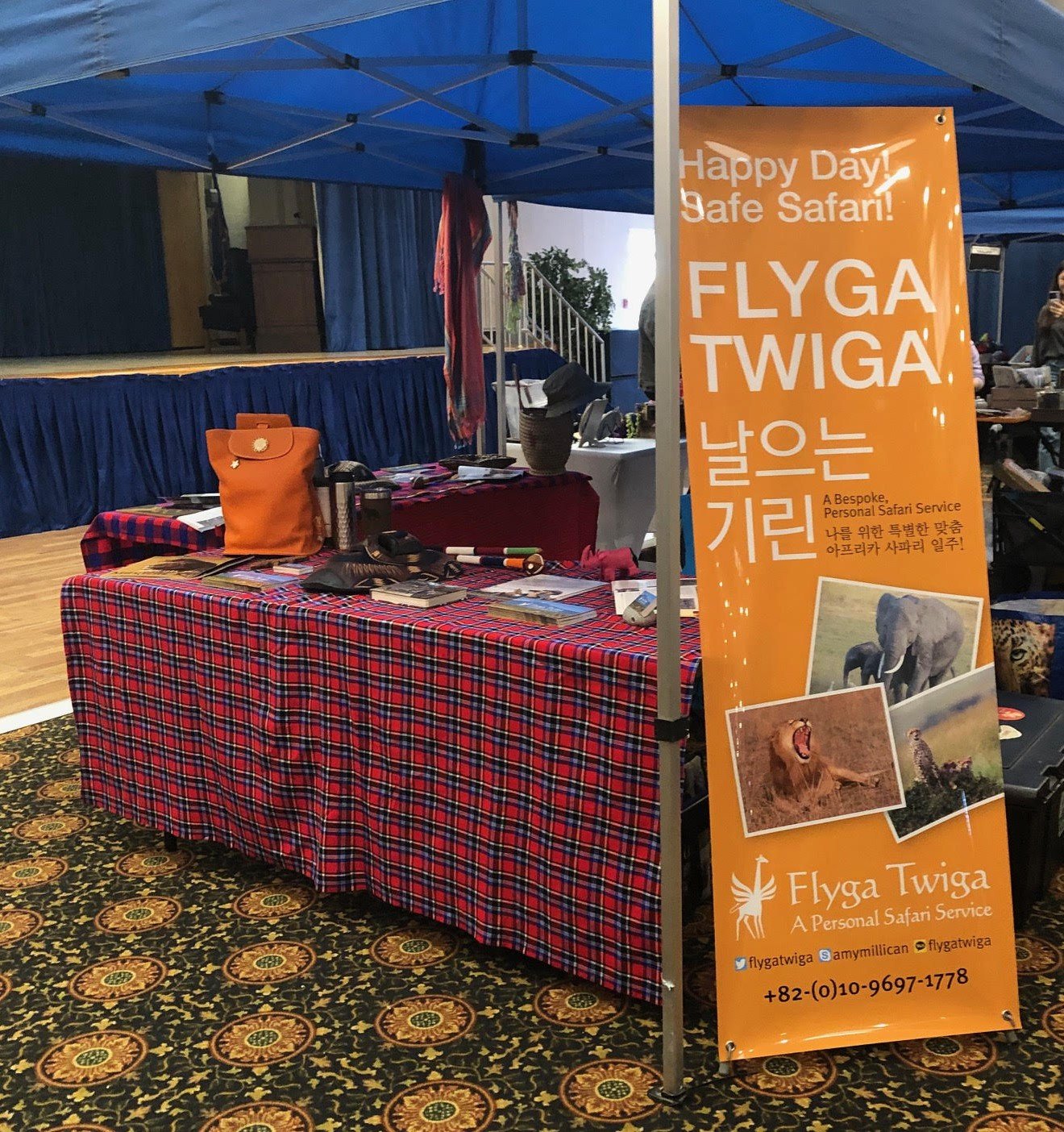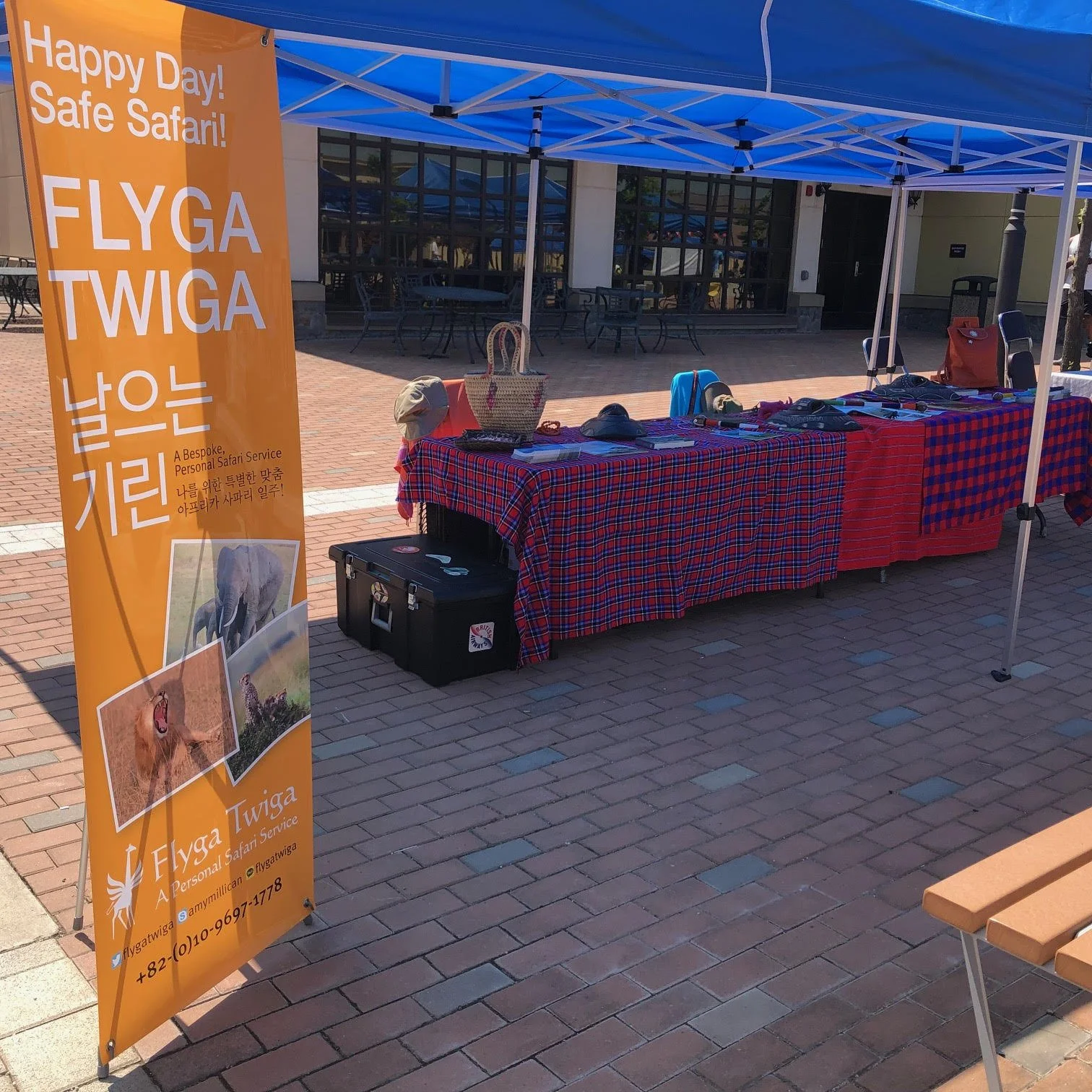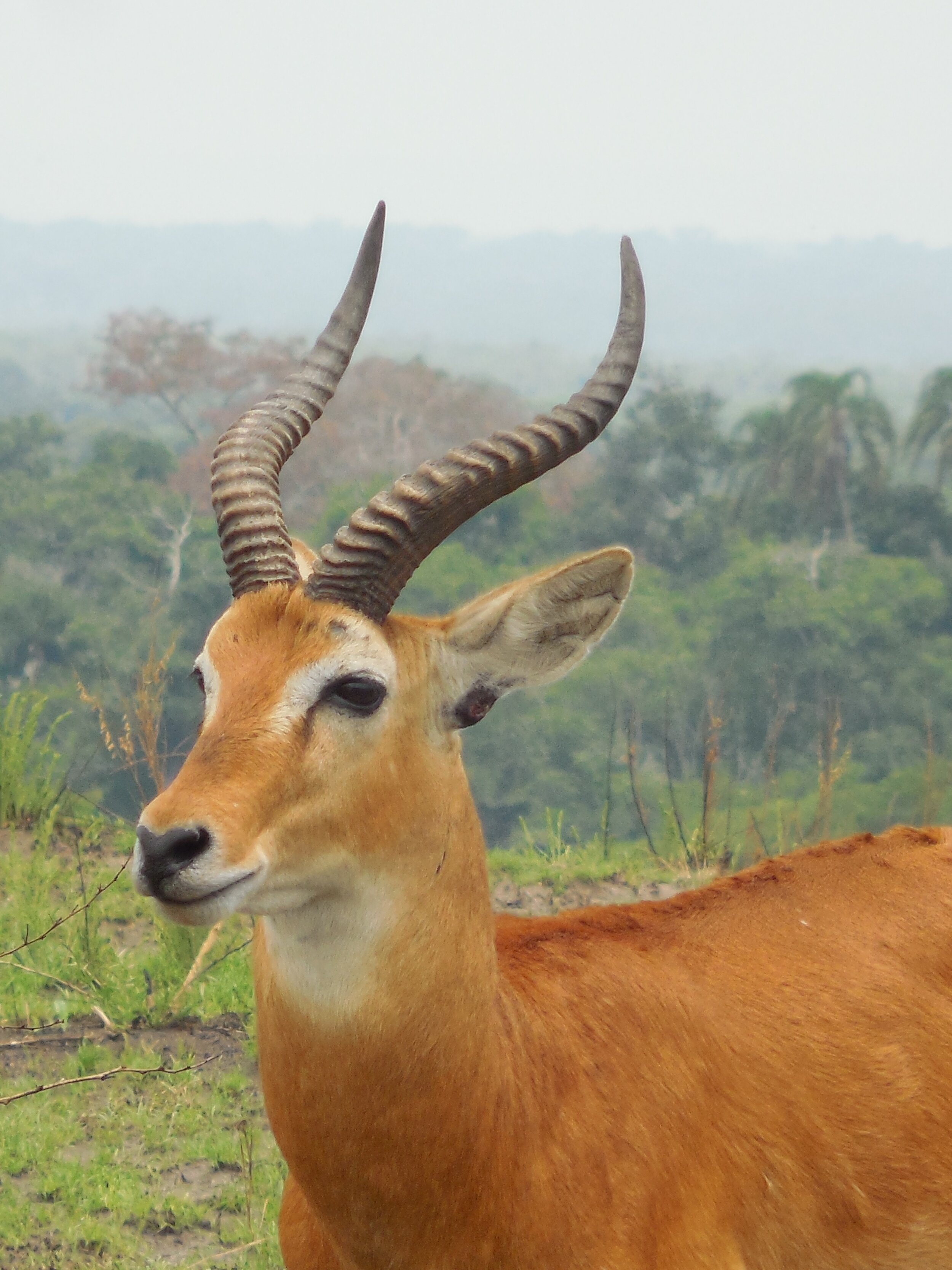#TravelTuesday Top 10 Questions About Going on African Safari!
1. When is the best time to go on an African Safari?
This depends on where you go and what you want to see. For example, South Africa is in the Southern Hemisphere. During their Winter, Northern Hemisphere Summer, the Elephant Grass is dead. This is the time of year preferred for Photographers. Great Migration in Kenya? Late June, July, August, and September. Want to save money? I had one of the most spectacular Gorilla Treks in Rwanda during November “Rainy Season”. What time of year is part of the discussion when planning!
Here you will find my lists of the Seasons for East and Southern Africa.
Guide on South Africa Bush Walk © Flyga Twiga™ LLC
2. Is it safe to travel to Africa for a Safari?
Yes – when you know what to do, where to go, and with whom to go. Why my Slogan is “Happy Day! Safe Safari!” You can find out more, here.
CDC Cover © Flyga Twiga™ LLC
3. What vaccinations or medications are required for an African Safari?
This depends on where you want to go. East Africa requires “Yellow Fever”. To the point Uganda will make you take the Vaccine, at the Airport, if you forget your Center for Disease Control Card (CDC). You can find here the CDC Vaccine Suggestions for Travel.
Photo Credit: Ecca Lodge Kwandwe Private Game Reserve
4. Can children or families go on an African Safari?
Absolutely! South Africa, outside greater Kruger National Park, is Malaria Free. Places such as Kwandwe Private Game Reserve, in South Africa’s Malaria Free Eastern Cape, have entire an Safari Lodge designed for children. Ecca Lodge is entirely fenced, for your child’s safety. In addition to special programs for children, each Family is given a Private Game Drive Vehicle. The perfect way to introduce budding Conservationists to African Wildlife!
Leopard, Mara North Conservancy, Kenya © Flyga Twiga™ LLC
5. Where is the best place to see the “Big Five” on Safari?
The “Big Five” were named by Teddy Roosevelt as the most difficult to hunt. We now “hunt” the Lion, Elephant, Leopard, Cape Buffalo, and Rhinoceros with our Cameras. While you can never guarantee which animals will decide to show themselves, there are places where you will have a greater likelihood for specific animals.
While having excellent Gorilla Trekking, Uganda does not have Rhinos in the wild. Kenya does, with Amboseli National Park having the famous Elephants which migrate within the Park. In South Africa, Sabi Sand has the largest density of Leopards on Earth! That said, one of the best Leopard sightings I’ve had on Safari was in Mara North Conservancy in Kenya.
We’ll plan together where your African Safari will be best – for you!
EcoTraining Trackng South Africa ©Flyga Twiga™ LLC
6. What should I wear or pack for an African Safari?
Jomo Kenyatta Airport Nairobi, Kenya © Flyga Twiga™ LLC
7. Do I need a Visa to visit African countries for a Safari?
Yes. This is also dependent on your Passport Country. For Americans, some are Visa Upon Arrival (such as South Africa), while others, such as Namibia have a long pre-Arrival application process. Here is the more in-depth. We see you through the process and make 100% sure you have all the documentation.
Fishing at Malaria Free Kwandwe Private Game Reserve, South Africa © Flyga Twiga™ LLC
8. What is the difference between a National Park and a Private Game Reserve?
There are 3 major differences. First is Ownership and Management. National Parks are publicly run and managed by the government (e.g., Kenya Wildlife Service for Amboseli). Private Game Reserves are owned and operated by private individuals, entities, or companies (e.g., Kwandwe in South Africa).
The second is Access and Regulations. National Parks are open to the Public, with Entry Fees, Self-Drive Options (for Residents), and stricter Rules on Activities (e.g., no Off-road Driving). Kruger National Park is a good example. Private Reserves typically restrict access to Guests staying at affiliated Safari Lodges (often called Concessions within the Safari Industry), allowing more flexible activities like Guided Night Drives or Walking Safaris.
The third is Size and Experience. National Parks are often larger and busier, offering diverse Ecosystems, with potentially more crowded viewing. Currently there are numerous Viral Videos regarding this year’s Great Migration. Private Reserves are smaller, more intimate, with lower Game Drive Vehicle densities. They may offer better wildlife sightings, and they may fund Conservation through tourism revenue. Kwandwe Private Game Reserve is an excellent example.
Loving Twiga, Kenya © Flyga Twiga™ LLC
9. What does a typical day on an African Safari look like?
A sample Safari Day:
05h00 A wake-up knock on your door. Tea, Coffee, and Rusks are served on the Lodge’s Main Deck followed by the Moring Game Drive, departing 05h30. Duration is approximately 3 hours.
Return to Lodge for a hearty African Breakfast. Plan one day for Bush Walk following Breakfast.
Between Game Drives, Relax by the Pool, Go to the Gym, Enjoy the Library & Games Room, Spa Activities, View Wildlife from the Viewing Deck.
Afternoon Tea, followed by Evening Game Drive. Sundowners on Safari. Followed by Dinner at the Lodge. Possible Night Game Drive.
Enjoy drinks by the Boma, sharing your day’s adventures with fellow travelers.
Lala Salama – rest well for another early Morning Game Drive tomorrow! #SafariLife
Cheerful Waitstaff South Africa © Flyga Twiga™ LLC
10. How much should I tip on an African Safari?
As the Safari approaches, this is the biggest concern for my Clients. As such, we tailor a personalized Tipping Guide for your bespoke Safari. While we can’t anticipate every moment you will want to tip, we arm you with the best knowledge extensive Safari experience can provide.
We can’t wait to start planning your dream African Safari Adventure!
East and Southern Africa Safaris are booking 2 years out -
Let’s start chatting today!
Happy Day! Safe Safari!
Mama and Baby Ellies, Kenya © Flyga Twiga™ LLC
#TravelTuesday Happy to Announce Flyga Twiga™ Trademark Renewed for another 10 Years!
One of the most important parts of any Business is the name. In 2014, I knew I needed a special name. My Husband and eldest Nephew (who accompanied me on my first Safari in 2008) helped me Brainstorm.
I loved the word Twiga, Swahili for “Giraffe”. What would rhyme? One of the words we batted around was Flyga, Swedish for “Flying”.
Why a great name? In South Sudan, the UN Guys “watched over me”. As a MilSpouse, they were all protective. They included my Friend from the United States, Bob. New Zealanders, Brits, Germans, Danes, and a Swedish Naval Officer, Mikael.
The name Flyga Twiga™ perfectly honors my Journey, or Safari, to where I am today.
Here’s to the next 10 years!
Champagne Karen Nairobi Kenya © Flyga Twiga™ LLC
Thank you Soldier's Wife Crazy Life! What a pleasure to be a Guest Writer!
#TravelTuesday New! Rwanda Gorilla Trekking
7 Epic trips to take to celebrate military retirement
Thank you to USAA and National Military Spouse Network (NMSN) for the opportunity to share my Military Spouse career journey!
My conversation with Sue
was so much fun!
#WildlifeWednesday Why my passion for Humans and Wildlife coexisting? My Grandfather!
As many know, I was raised by my Maternal Grandparents. My Grandfather spent part of his youth on a Farm in rural Southwest Virginia. In order to help me sleep, my Grandaddy told me “Big Black Bear” stories.
Each story was about how a Big Black Bear would have some sort of interaction with humans. Each encounter would be resolved without anyone, bear or human, getting hurt. Peacefully co-existing.
Sometimes the Farmer would find the Big Black Bear in his orchard. When the parents went to town, the Bear would get in the house. The children would hide, watching the Bear eating their food. One of my favorites was coming upon a Bear, on our way to go fishing.
I was raised believing there was a way to live with Wildlife. Now, my business is dedicated to African Wildlife Conservation through Safari Adventures.
I think my Grandaddy would be proud.
Big Black Bear Stories © Flyga Twiga™ LLC
Commissioned Artist: Kazakhstani Korean Tanya Kim
#SafariSaturday Great Day at Osan Air Base Fall Market!
Thank you to all who attended.
Loved meeting so many people enthusiastic about African Safaris!
#TravelTuesday Thank you Erin Henderson Media for the Shout Out and Beautiful Pictures from Your South Africa Safari Adventure!
Happy #TravelTuesday The Shoutout that moved me to tears this morning!
Fun at Camp Humphreys STEM Scouts of Pack 203 Event - Wildlife Conservation & EcoTraining
No.…the stuffed Twiga isn’t mine. One of the parents brought it & I added the hat. Camp Humphreys has some extremely bright children!
Great Juneteenth Celebration at Camp Humphreys, South Korea! #celebratefreedom #safari #wildlifeconservation
Great event at Camp Humphreys Asian American Native Hawaiian Pacific Islanders (AANHPI) Festival!
#TravelTuesday What's Happening With 2024 Safari Pricing?
While working on a Safari for 2024, my South African Travel Partner, Nikki Thaver of Southern Africa 360, informed me that South Africa 2024 rates would be going up between 10%-15%. In my opinion, East Africa will follow suit.
These increases are not random “money grabs.” Rather, they are in response to immense outside factors. Increasing prices is vital for Sustainable Tourism, Wildlife Conservation, and Supporting Local Communities.
Below is an email I recently received from Joe Cloete, Shamwari CEO. Joe’s email is the most thorough and transparent discussion, I have seen, of what is happening in the Safari industry. With permission, I am sharing this information. I am honored to work in an industry with such examples of honesty and integrity.
Thank you Shamwari!
Zebras South Africa©Flyga Twiga™ LLC
Dear Travel Partner
I thought it would be prudent to inform you about the challenges that the hospitality sector and, in particular, private game reserves are facing due to the current economic climate and some of the hard decisions we’re having to make as a result.
Having emerged from three years during which the Covid-19 pandemic devastated the sector and affected many people’s lives and livelihoods, intense cost pressures are now causing further serious headwinds.
It is apparent that we will face at least four to six stages of load shedding [rolling blackouts] and possibly worse throughout 2023/24. This means our back-up generators will have to run for between six and 12 hours a day.
Eskom [South Africa's state-owned electricty utility] has announced that when electricity is available it will be at a higher price. Tariffs will increase by 34% over the next two years. In addition, the price of fuel has increased by 52% year-on-year.
Given this we are investing in hybrid solar-energy solutions across the reserve during 2023/24. Unfortunately, while a judicious investment under the circumstances, the capital cost runs into millions of rands.
Other costs that are beyond our control are food-price inflation, which is at its highest in 14 years and a 9.6% increase in the national minimum wage from April 2023.
All these rising costs are putting incredible pressure on our business.
Shamwari has always prided itself on running a successful conservation project that is sustainable and self-funding. We get no help from Government, despite the considerable contribution private game reserves make to conservation. For example, a recent University of Stellenbosch study found that private reserves support the largest number of white rhino on the continent.
To continue this work and secure our future we only have two options: to increase revenue or to reduce costs.
Our revenue model is already finely tuned and there’s very little we can realistically do to grow income and offset the considerable and rising costs we now have to bear.
We have, however, reviewed our current seasonal rate structures. As of April 2024, we will offer two rate seasons i.e. Winter (April to September) and Summer (October to March). The winter rate will be the extension of April 2024 rate, which is already contracted with you. The Summer rate increases by 10% from October 2024.
The existing conservation levy of R150 per person daily is being increased to R650 per adult / R300 each for children between the ages of four and 11 years old. The levy is used to support local community projects, our considerable anti-poaching efforts and our Wildlife Rehabilitation Centre. This has already been implemented with our direct bookings as of 01 March 2023.
Please note the new conservation levy applies to all bookings, direct or otherwise.
Our 2024/2025 rates are now available. To request Shamwari Private Game Reserve rates please fill out the form below.
I hope you will understand the unprecedented circumstances that have forced us to make such a difficult decision. I acknowledge and greatly appreciate your support, which has contributed to making Shamwari a 30-year conservation success story. I trust that we can rely on you to continue this legacy.
Best Regards
Joe Cloete
CEO
Shamwari, meaning "my friend" in Shona is the pinnacle of private game reserves and home to the coveted Big 5. Stretching over a vast, malaria free landscape, it offers an award-winning nature experience and is one of the largest private conservation initiatives in Southern Africa. Shamwari incorporates six lodges and an explorer camp: each unique in its own essence.
Video Credit: Shamwari Private Game Reserve.
This has to stop! With no tourists in sight - horrific increases in Africa Wildlife Poaching!!!
Rhino Africa ©Flyga Twiga™ LLC
According to the South African Times, “Poachers behind the Wednesday night massacre of four rhinos at Inverdoorn private game reserve north of Cape Town sawed off a fake and worthless fibreglass horn from one of the animals they shot.” They didn’t even get REAL horns!
The article may be found here. And, this truly deserves a Trigger Warning!
This is why I started my company.
Without tourism, African Wildlife will be poached into extinction.
Safaris are Wildlife Conservation.
Rhinos in the Wild © Flyga Twiga™ LLC
#TravelTuesday Great to be back at Magical Kenya Travel Expo MKTE 2021 Virtual
Meeting with old friends and making new ones!
#TravelTuesday Top 3 Safari Questions to Answer Before Your Bespoke African Safari Consultation
Top 3 Safari Questions
The first question people often ask is “How much does it cost to go on an African Safari?” While this question is understandable, there are 3 Questions I request Clients answer, prior to their first Bespoke Safari Consultation.
The Reason for the Consultation
Flyga Twiga™, as a Personal Safari Service and Consultancy, does not have pre-designed “packages”. Rather, the whole reason for the founding of Flyga Twiga is to give you the Safari Experience YOU want. Not what someone else “thinks” you want or should have.
So, prior to your first Personal Safari Consultation, please ask your self the following 3 Questions:
Ellies & Kili, Amboseli Kenya © Flyga Twiga™ LLC
1) Who is going on the Safari?
A couple, a family, a multi-generational family, friends, business associates… For example, while many Game Lodges and Safaris welcome young children, some restrict ages.
2) When do you want to go?
There are High Seasons and Low Seasons in East and Southern Africa. And most definitely benefits to each.
3) What is your “Dream Safari Experience”?
Each Safari should be as unique as your Dreams.
Perhaps you have your heart set on the great Mountain Gorillas. Or learning how to be a Safari Guide, on EcoTraining, is the adventure of a lifetime you seek. The unique Maasai Culture has fascinated you. Let’s make those dreams a reality.
Mgahinga Gorilla National Park © Flyga Twiga™ LLC
There a lot more fun and involved questions we will go over when we begin planning our bespoke Safari. These are just the exciting starting point…
Until we talk, please take a look at our suggested Safaris here.
Asante Sana & Happy Day! Safe Safari!
#TravelTuesday Excited and honored being selected as finalist for The Rosie Network's 2020 National Veteran & Military Spouse Entrepreneur Awards!
With a record number of applicants, I am honored and excited to be selected as a Finalist for The Rosie Network's 2020 National Veteran & Military Spouse Entrepreneur Awards!
Please visit the Rosie Network and find out about their important mission.
Happy Day! Safe Safari!
#WildlifeWednesday Conservation in the Time of Covid19!
Impala, Queen Elizabeth National Park, Uganda ©Flyga Twiga™ LLC
Michael English
Cape Town, South Africa
How does your Safari benefit Conservation?
The last few months have put all our travel plans on hold due to Covid-19. Many of us are dreaming about freedom and where we will travel next. While this Pandemic is happening, the future of Africa’s natural landscapes hangs in the balance. How does your next vacation impact on this? In short, tourism keeps the Rhinos and Elephants alive.
Swimming Elephants Queen Elizabeth National Park ©Flyga Twiga™ LLC
Funding for Conservation
Game Reserves rely heavily on Tourism and related donor funding to support Conservation efforts. Funds raised support the continued existence of some of the World’s most biodiverse landscapes. It is estimated that less than 4% of the world’s charitable donations are to Wildlife and Conservation causes. South Africa has some of the best-funded National Parks and Conservancies in Africa, but just 25% of the money comes from the government. The rest is garnered through conservation fees levied on Tourists visiting these wildlife regions. Going on Safari!
Ready for Business!
EcoTraining Vehicle, South Africa © Flyga Twiga™ LLC
Conservation as Business will be the future of travel
It is estimated that 8 million tourism-related jobs in Africa are at risk due to the global shutdown. All Lodges, Bed & Breakfasts, and Hotels near Game Reserves provide employment and socio-economic benefits to the local community. Thereby giving value to the protection of these habitats. Conservation-as-business is going to be a key component of Tourism going forward. Moving beyond mere job creation, responsible Operators and Eco-Tourism will form the bedrock of local communities.
An example of low impact high-value sustainable tourism saved a species is that of the Mountain Gorillas. Here initially the Lodges were less concerned about being sustainable. However, their very presence meant that the Gorillas had economic value to the local community beyond that of bushmeat and muti. A greater goal was achieved, that of preserving an Ecosystem and saving a highly endangered Species that many agree without tourism would only exist in a zoo today.
Alpha Male Nyakagezi Group Mgahinga Gorilla National Park ©Flyga Twiga™ LLC
Conservation in the time of Covid-19
An effect of Covid-19 has been to bring these revenue streams to halt as Tourists can no longer travel. One of the greatest fears of Conservationists during the Covid-19 pandemic is that due to a lack of income for local communities, the animals and land will be viewed as a resource for the taking. Wildlife will be more valuable to them as bushmeat, or in trafficked parts.
The land better turned over to slash and burn agriculture. Human-wildlife conflict is already on the increase with a marked increase in reports of poaching incidents throughout Africa. We need to continue to show the local people the benefits of these regions.
Supporting Local Communities!
Maasai Village Amboseli National Park, Kenya © Flyga Twiga™ LLC
How you can support Conservation efforts
The best way to support conservation will be to travel once you can after Covid-19. Yet the reality is that we do not know how long we will have to wait to do so. The opportunity now is to use this time to dream and plan. Please click here if you would like to schedule a free, two-hour planning session. We will answer questions and help you plan your dream Safari. Our in-country Partners continually contact us & your interest would be a huge moral booster to the local communities. And, in turn, you will be helping and becoming a part of Sustainable Tourism and Wildlife Conservation.
Happy Day! Safe Safari!
We will be back!
Wildebeest Amboseli National Park, Kenya © Flyga Twiga™ LLC

